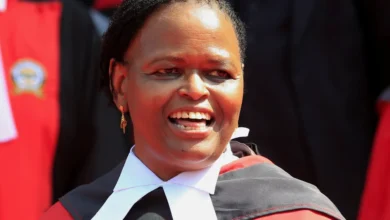
The Supreme Court of Kenya has set March 31, 2022, to determine whether the Building Bridges Initiative (BBI) will proceed for a referendum or uphold the Court of Appeal ruling.
In a notice dated March 28, 2022, Supreme Court Registrar Letizia Wachira said the ruling will be made at 9 am.
“… judgment in this matter will be delivered on March 31, 2022, at 9 am, before the Supreme Court of Kenya,” reads the note.
Court of Appeal, in its ruling, shot down BBI on August 20, 2021, terming it null and void.
The Verdict
It will be a waiting moment to hear the ruling which is centered around two political factions in the country, with President Uhuru Kenyatta and chief of opposition Raila Odinga’s side pitting themselves against Deputy President William Ruto’s.
Government representation through Attorney General Paul Kihara appealed the Court of Appeal ruling which upheld the High Court’s that the initiative was unconstitutional, null, and void.
AG Kihara filed his appeal on eight grounds that included court findings that basic structure doctrine is applicable in Kenya.
He is also challenging appellate court finding that civil proceedings can be instituted against the President or a person performing the functions of the office of the President in Kenya during their reign with regards to anything done or not done contrary to the constitution of Kenya.
AG is also appealing the ruling that the President does not have authority under the Constitution to initiate changes to the Constitution, and that a constitutional amendment can only be initiated by Parliament through a Parliamentary initiative under Article 256 or through a popular initiative under Article 257 of the Constitution.
Can President be Sued?
Kihara is disgruntled with the findings that the BBI process contravened the constitution; in particular Article 10.
The Court of Appeal and the High Court ruled that the President can be sued in his personal capacity during his tenure in office for anything done or not done.
The government (Uhuru Kenyatta), through Lawyer Waweru Gatonye, said the lower courts erred in law by finding that a sitting president in Kenya can be sued.
IEBC on the other hand appealed findings by the Court of Appeal over the constitutional composition, quorum and mandate of the Commission.
Some analysts say that even if the Supreme Court sides with the government and allows the proposals to be put to a public vote, there will likely not be time to hold a referendum before the August election.





